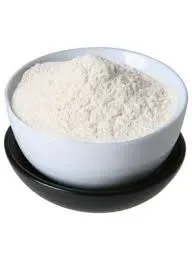
តុលា . 10, 2024 23:33 Back to list
Understanding the Benefits and Applications of Dispersible Polymer Powders in Various Industries
Exploring Dispersible Polymer Powders Properties, Applications, and Benefits
Dispersible polymer powders have gained significant attention in various industries due to their versatility and unique properties. These materials are primarily used to enhance the performance of formulations in fields such as construction, coatings, adhesives, and more. In this article, we will explore the characteristics of dispersible polymer powders, their applications, and the benefits they bring to modern manufacturing processes.
What Are Dispersible Polymer Powders?
Dispersible polymer powders are fine powders synthesized from different types of polymers that can be easily dispersed in water or other solvents to form stable emulsions or suspensions. These polymers can include polyvinyl acetate (PVAc), polyacrylics, and others. The ability of these powders to be dispersed effectively in liquid environments makes them a preferred choice in many formulations.
A critical feature of dispersible polymer powders is that they typically possess a high molecular weight, which enhances their performance in various applications. When mixed with water, they can rehydrate and reconstitute into a usable form, providing the same functional properties as their liquid counterparts.
Key Properties
1. Versatility Dispersible polymer powders can be formulated for different applications by altering their chemical composition and structure. This allows manufacturers to tailor products to specific needs, whether it's improving adhesion in adhesives or enhancing the flexibility of coatings.
2. Ease of Use Unlike liquid polymers that can be cumbersome to handle, polymers in powder form are easier to transport and store. They are often more stable, reducing the risk of degradation over time.
3. Environmental Compatibility Many dispersible polymer powders are designed to be environmentally friendly. They can be formulated to reduce the need for organic solvents, making them safer for both workers and the environment.
4. Performance Enhancements Adding dispersible polymer powders to formulations can significantly improve critical performance characteristics such as adhesion, flexibility, and durability. In construction applications, for example, these powders can enhance the tensile strength and water resistance of mortars and paints.
Applications of Dispersible Polymer Powders
Dispersible polymer powders find their applications in numerous industries, including but not limited to
dispersible polymer powder

1. Construction In the construction sector, these powders are widely used in cement-based formulations, mortars, and adhesives. They help improve workability, water retention, and the mechanical properties of the end products.
2. Coatings and Paints In paints and coatings, dispersible polymer powders enhance adhesion to various substrates, improve the film formation process, and contribute to the overall durability of the coating.
3. Adhesives and Sealants The addition of dispersible polymer powders can improve the bonding characteristics and flexibility of adhesives, making them suitable for diverse applications, from household items to industrial machinery.
4. Textiles In the textile industry, these powders are used to enhance the fabric's properties, adding water repellence and improving dye adherence.
Benefits of Dispersible Polymer Powders
The advantages of incorporating dispersible polymer powders into formulations are numerous
1. Cost-Effectiveness Using these powders can reduce production costs, as they often allow for lower amounts of raw materials while still achieving desired performance levels.
2. Improved Product Quality By enhancing adhesion, flexibility, and durability, dispersible polymer powders contribute to the overall quality of the final product, which can lead to increased customer satisfaction.
3. Sustainability Many formulations using dispersible polymer powders have a lower environmental impact, aligning with the global movement toward greener manufacturing practices.
4. Innovation The versatility of dispersible polymer powders fosters innovation, allowing manufacturers to explore new formulations and applications that were previously unattainable.
Conclusion
Dispersible polymer powders are a crucial component in various industrial applications, providing manufacturers with the means to enhance product performance while also promoting sustainability and ease of use. As industries continue to evolve, the demand for innovative materials like dispersible polymer powders will likely grow, paving the way for new advancements in technology and material science. Whether in construction, coatings, or adhesives, these polymers play an essential role in shaping the quality and efficiency of modern products.
-
The Widespread Application of Redispersible Powder in Construction and Building Materials
NewsMay.16,2025
-
The Widespread Application of Hpmc in the Detergent Industry
NewsMay.16,2025
-
The Main Applications of Hydroxyethyl Cellulose in Paints and Coatings
NewsMay.16,2025
-
Mortar Bonding Agent: the Key to Enhancing the Adhesion Between New and Old Mortar Layers and Between Mortar and Different Substrates
NewsMay.16,2025
-
HPMC: Application as a thickener and excipient
NewsMay.16,2025
-
Hec Cellulose Cellulose: Multi functional dispersants and high-efficiency thickeners
NewsMay.16,2025







